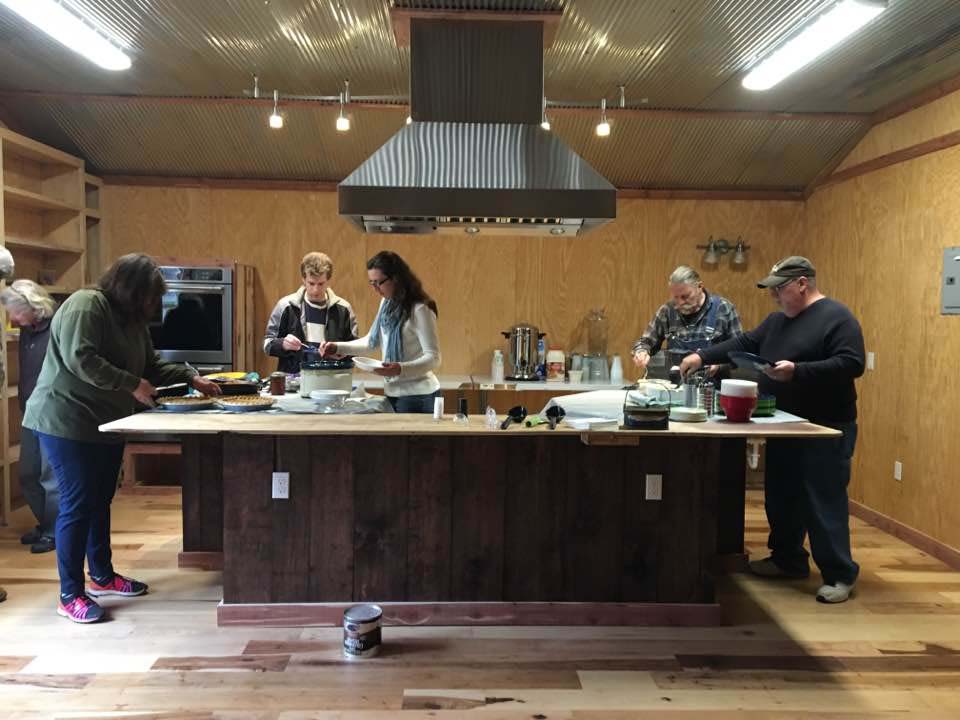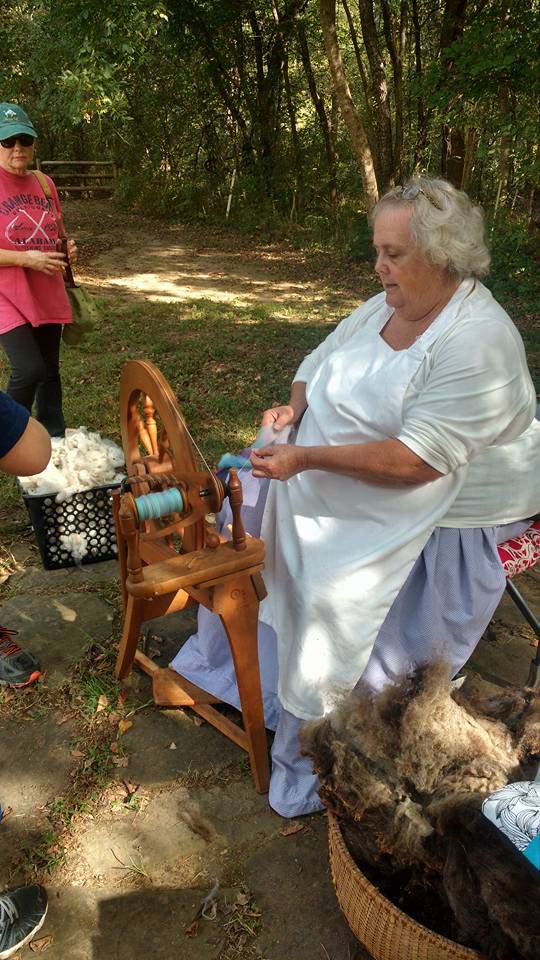Featured Farmer:
Ruth Pepler from Dogwood Hills Guest Farm
Tell me a little about your urban farm. What’s its name? Size?
We are actually really rural.  Dogwood Hills Guest Farm is a homestead farm on 72 acres by the Buffalo National River in Harriet, Arkansas. We are on a rocky hillside surrounded by “hollers” with limited pasture.
Dogwood Hills Guest Farm is a homestead farm on 72 acres by the Buffalo National River in Harriet, Arkansas. We are on a rocky hillside surrounded by “hollers” with limited pasture.
What are you growing?
We have dairy cows and goats, chickens, ducks, sheep and a couple of horses. We grow hydroponic barley to feed the dairy animals. We grow organic herbs in the high tunnel.
What kind of climate are you growing in?
We are in a mountain region in South Central US. The temperatures are seasonal.
What initially got you interested in urban farming?
Our guests are the ones that are interested in urban farming. Many of them live in cities and are coming to the farm to learn how to do the things our grandparents used to do. Many of them ask how they can do things on a smaller scale to be self-sufficient.
Do you use any organic, permaculture, hydroponic, biodynamic, or other methods?
We have very limited pasture, but have overcome this by choosing what does work for our farm. We also have a system that produces hydroponic barley fodder for our dairy animals. We have a high tunnel that we are planting with organic herbs.
Do you use compost?
Where do you get it and how does it help your plants? Almost everything on the farm is either composted, reused (animal feed) or recycled. We throw away very little actual trash.
Do you have any urban livestock? Chickens? Bees?
We have chickens, my neighbor has bees. What do you do with the food you grow?
What do you do with the food you grow?
We either use the products ourselves or serve it on the farm. Our farmstay guests get a u-pick breakfast to take back to the farmhouse for self-prep or they can eat meals with us family style.
What is your greatest challenge in your farming endeavors?
Having enough help to help with all there is to do.
What do you enjoy the most about farming/growing food?
Getting out in the garden in the morning when everything is very still and putting a meal on the table that was all grown or made right here on the farm.
Why do you think urban farming is important?
We want to encourage the urban farmer to provide an opportunity for self-sufficiency, knowledge and healthy food choices for themselves, their families and the communities where they live.
Do you think this is a growing movement?
Yes, more people are wanting to know where their food comes from. Many kids don’t realize there is a source beyond the grocery shelf.
Is urban farming the future of agriculture?
As I see the small farm come back to society, it is taking many forms, from really rural to urban and everything in between. I think the small family farm is revitalizing and am very happy to see this. It is not only about the growing and tending the garden, but the interaction with each other and ultimately the meal together at the table and the end of a productive day. Do you have any advice for someone that’s just getting started?
Do you have any advice for someone that’s just getting started?
Start slowly. Add one thing at a time and as you find that it is working add more. It is easy to take on too much at once and get overwhelmed.
Anything else you’d like to add?
If anyone would like to come check out a working homestead farm and see what goes into various aspects of farming, check out thefarmex.com and come see us.
Want more from Ruth? Listen to her on The Urban Farm Podcast here.
*Disclosure:
Some of the links in our podcast show notes and blog posts are affiliate links and if you go through them to make a purchase, we will earn a nominal commission at no cost to you. We offer links to items recommended by our podcast guests and guest writers as a service to our audience and these items are not selected because of the commission we receive from your purchases. We know the decision is yours, and whether you decide to buy something is completely up to you.






